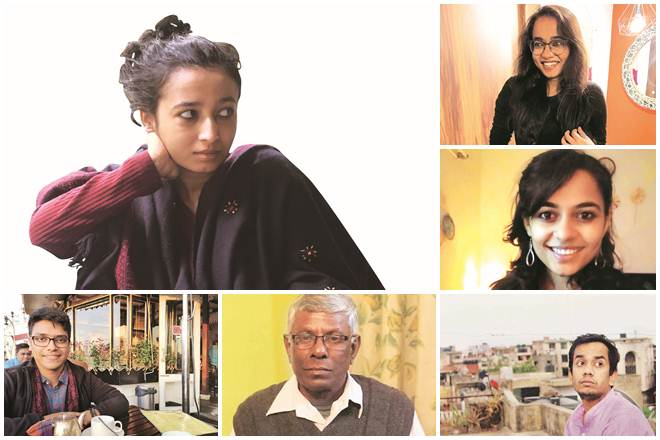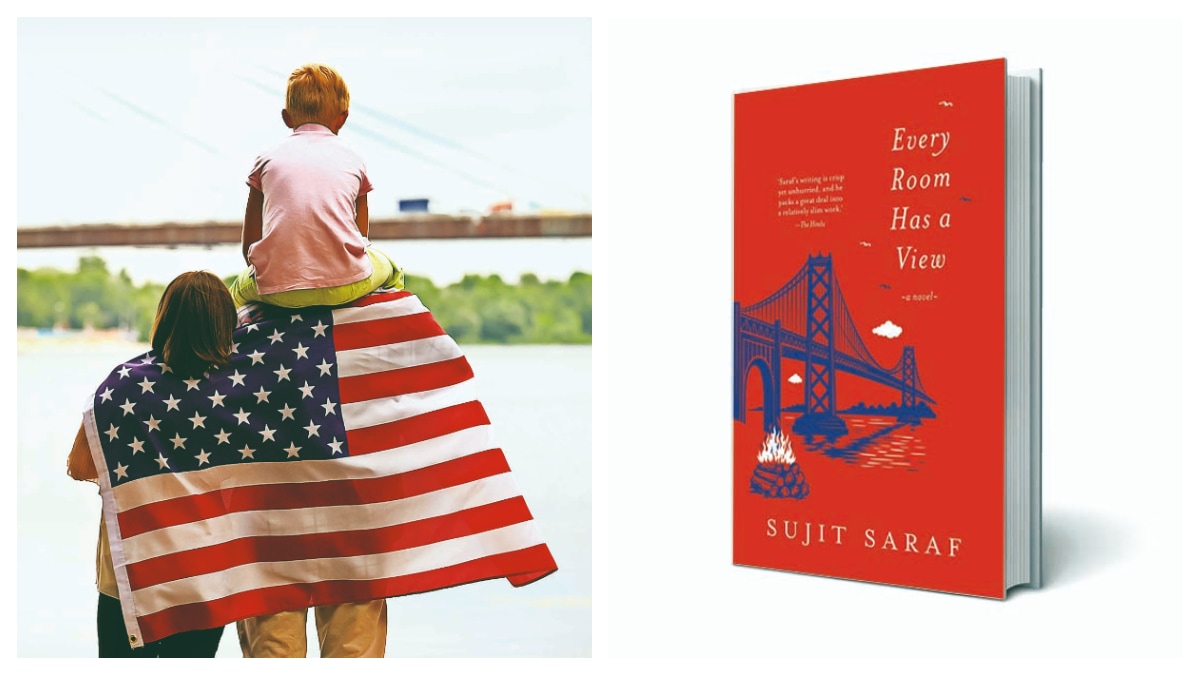By Shriya Roy
No coming out of the house, no handshakes, no going out on dates, no movie outings, no coffee breaks. It’s been a couple of weeks now since our lives changed completely. Following the Coronavirus outbreak, social distancing is being practised across the world, as researchers and doctors say it’s the best way to curtail the disease’s spread. It’s no surprise then that ‘social distancing’ has been the most used phrase on the internet in the past few weeks.
Humans, however, are social beings who thrive on socialising. Naturally, many have complained of anxiety and other mental health issues as a result of being ‘locked’ at home. Some find it claustrophobic, giving rise to the feeling of being trapped. Furthermore, the constant barrage of news talking about rapidly escalating numbers of those affected or dead only adds to the misery.
But while it’s true that different people react to a crisis differently, it’s also true that different age groups, too, have a different response to adversities. While the young might take the help of social media to unwind, the elderly usually turn to religion and spiritualism to find inner peace. So how are the different age groups in the country coping during this time of a severe health emergency? Read on to find out…
Obliviously distanced
Social distancing for the younger age group is relatively tough, as they are used to going out dining, clubbing, movie-watching, or just chilling with friends over cold coffee. But the young are also known to be extremely adaptable. Plus, the internet is their big saviour, helping them connect with their peers. “I am not affected by social distancing. Our campus was vacated so I came home to my parents, and it feels like a long home visit. My friends and I are very active on Instagram, so I don’t really feel out of touch with anyone yet. It’s bizarre to think of big words like ‘curfew’ and ‘lockdown’, but social distancing is something our generation can easily do!” says 17-year-old Shreya Kapil, a first-year fashion designing student at the National Institute of Fashion and Technology, Kangra, who is currently in Devlali, Maharashtra.
While connecting with friends is happening as usual, connecting with parents is what’s interesting in the changing parent-child dynamic. There’s been a sort of role reversal between the millennials and their parents, wherein it’s the progeny begging the parents to stay at home and not believe every WhatsApp forward. The pandemic has also made them more conscious of their responsbility towards the elders. “The social distancing and lockdown have led to a rethinking of what ‘ordinary’ or ‘regular’ schedules are. For students, or for able-bodied adults, it’s a marked difference from what we are used to, but it has also made me acknowledge what everyday life is for the elderly or those whose mobility is restricted due to other physical constraints,” says Jayati Sen, a 22-year-old, final-year master’s student at Jawaharlal Nehru University, New Delhi.
Agrees Srishti Kapil, a 21-year-old student from Tata Institute of Social Sciences, Mumbai: “As a nation, we could have taken action a lot sooner. I didn’t take the threat seriously until 10 days ago. But now, social distancing, following the lockdown guidelines, giving paid leave to all employees and helps, is what can get us through,” she says, adding, “I do my assignments from home and spend time with my pets. My friends and I video call and sync our films together. Being online is anxiety-inducing but inevitable… it’s important to sort out the facts from the rumours and not spread panic.”
The Coronavirus epidemic, however, has made dating more complicated. Dating apps like Tinder, Bumble and Hinge are constantly flashing reminders to wash hands. The first messages, too, are full of coronavirus references. Bumble has also introduced the idea of first dates through video calls instead of face-to-face meetings in the face of the virus outbreak. Some people are even going the creative way, with bios seeking help to “ride out the apocalypse”. Twenty-two-year-old Saransh Saxena from Kolkata, who freelances as a cartoonist, says he finds it hard to talk to people on these apps right now. “Nobody wants to risk going out or meeting… going out would mean risking my family and everyone else around. So stepping out is a no-no. And with online dating, that’s the most important aspect: meeting. So no doubt, dating is totally out of question right now,” he says.
Tackling uncertainty
With the lockdown, work-from-home has become the new norm and young professionals have adapted quite easily to the change. “Social distancing is here to stay,” believes 28-year-old Vivek Mukherjee, an assistant professor at NALSAR University of Law, Hyderabad. “COVID-19 is just the tip of the iceberg. Social distancing will transform the way humans perceive reality. Coronavirus has catalysed our preparation for a world where human interaction is not physical but virtual,” says Mukherjee, adding, “There are both risks and opportunities attached with working in the virtual world. In politics, propaganda will be commonplace, as it’s easier to penetrate the virtual mind. On the brighter side, though, chances of physical abuse will be reduced. Individual thinking may also replace collective thinking.”
As far as working from home is concerned, it can be both a boon and bane. While it allows one the luxury to work from their living room, it can also prove to be quite taxing at times, as one can end up working the entire day. “Working from home is not as hunky-dory as one may imagine. It’s very important to remain focused, have an agenda in place and ensure that work doesn’t suffer. I am lucky to be living independently, but I am sure people trying to work out of a full family set-up are finding it more challenging,” says 26-year-old Ayanti Ghosh, a PR professional based in Delhi.
Being confined to one’s house 24×7 can also play havoc with one’s mental health, an urgent issue that requires to be addressed. “We need to take special care of our mental health at this time. We have never seen anything like this before. It’s slightly unnerving to see usually bustling streets absolutely empty,” says Nishtha Shanti, a Delhi-based young media professional.
Agrees Amita Nowal, a Teach For India Fellow in Delhi: “As someone who has been struggling with mental illness for over six years now, I can’t help but think about all those people who are battling one or the other form of anxiety right now. Given the circumstances, I too find it difficult to stay productive,” says the 24-year-old, adding that the lockdown has also made her think about the homeless. “We can talk about taking shelter in our houses, but that’s assuming that people have houses where they can stay under a lockdown,” she adds.
This is a feeling shared by 24-year-old JNU graduate Koumudi Mahanta who says that even though this time has made her “realise the beauty of human contact”, she can’t help but feel helpless knowing that there are countless others without a shelter over their heads. The poor, she says, have suffered the most with no means to tackle the rapidly changing situations. “The security and warmth that come by simply being with people you feel close to is extraordinary. However, it makes me feel sad about homeless people,” says Mahanta, who is from Guwahati.
Many young professionals are also worried about the future in terms of the jobs scenario, especially considering the fact that the economy is in a slump currently. “Being able to sit back is a matter of choice and privilege. But even as social distancing has given me the time to reflect on my overall wellness, it has also decreased my chances of full-time employment,” rues 24-year-old Sikkim-based Ayushi Nirola, who was till recently a PR trainee at Expanrr, an online media and PR company.
With lockdown and travel restrictions in place around the world, the human community is suffering a collective fate. For a developing country like ours, however, the costs are significantly greater. “These times are going to be taxing for all of us in varying degrees. Social distancing in a third-world country like ours is not limited to the social parameter alone, but also includes the economic. Most of us are undergoing psychological distress on account of this,” says Akansha Singh, an assistant professor at NALSAR University of Law. The plight of the marginalised section, the 24-year-old asserts, is much worse. “Daily wage workers, most of whom migrated to big cities for job opportunities, are now stranded. Their income has abruptly come to a halt,” she says.
In practice, social distancing is much harder than it looks. The sudden change in environment tests the capability of each and every individual to adapt. To move away from the daily routine of getting up and going to work is tough to adjust with. The lockdown, however, has also brought some much-needed peace and calm to many people’s fast-paced lives. “Traffic noises and the hustle and bustle of 10-7 jobs have been overtaken by daily chores. I have never seen Delhi roads so peaceful. Also never heard neighbours quarrel so vividly,” says Anant Pundir, a 27-year-old entertainment journalist based in Delhi.
Feeling trapped
Those in their 40s and 50s are usually more or less settled in their lives and, hence, being home for a prolonged period of time is less bothersome and more comforting for them unlike young adults. They also have a very different way of dealing with situations and take decisions in a measured manner. However, that doesn’t mean there are no worries. The psychological impact of a pandemic, the distance from their children and health worries take centrestage for them. Gitali Sen, a government school teacher in Delhi, says she misses her students and worries about their studies as exams have been postponed indefinitely and in some cases even cancelled. “For me personally, this self-isolation and quarantine, despite being of utmost importance at the moment, is also extremely tough because being a teacher, I am not able to help my students and feel helpless. The fact that we have taken the environment around us for granted is clearly visible in the current state of things. Right now, to be able to go out, even for a walk, is a luxury. It’s hard for me to move away from my daily routine of going to school, but like I have always believed, this too shall pass,” says the 55-year-old.
Not just their children, people of this age group also worry about their aged parents, especially those living away from them. “I feel helpless not being able to meet my old parents who live in Siliguri, West Bengal,” says Mamata Sharma, a 50-year-old government servant in Sikkim, adding that she feels “trapped” due to the lockdown even as it has made her more aware and feel responsible for others around her.
Agrees 53-year-old Kavyashree Mahanta, a government servant based in Guwahati: “At present, there seems to be no alternative to physical or social distancing. It’s tough, but we must accept it as this is the only way to control the menace. The challenge for the authorities is to create awareness, conduct proper tests and make adequate preparations,” says Mahanta.
Many, however, see a silver lining amidst all this chaos. “The silver lining in this lockdown is the way other creatures have been able to flourish,” says Mridul Kumar Mahanta, a 54-year-old administrative officer with the Assam government. “COVID-19 can be defeated not only by those on the frontline, but also by those who maintain social distancing and spend quality time with their family and loved ones,” he adds.
Growing isolated
The virus hits old people, usually above the age of 60, the hardest, as their immunity is much lower than the young. Social distancing, hence, becomes extremely important for them. But for those with an active post-retirement life, the lockdown has come as a big blow. Ashok Roy, a 65-year-old retired railway employee in Siliguri, finds it hard to stay at home the whole day. The confinement, he says, only makes him want to go out even more. “I have been an extremely social person all my life. I can’t seem to adjust with the lockdown, as I can’t go for my evening walks with my friends. That was one part of my post-retirement life that I absolutely enjoyed,” says Roy.
Rampal Chaddha, a 70-year-old resident of Delhi, has a similar complaint. “My daily walks in the park have now been compromised. As much as I realise the grave threat that the virus poses for us old people, these daily walks are the only form of social bonding that our age allows. People have also stopped coming to our house. All this makes me really sad,” he says.
For octogenarians, however, being confined to their homes has been a way of life for some years now and something they have gotten used to. Their home is their world now. “I am used to staying at home. Social distancing hasn’t really brought about a considerable change in my life, but I do worry about my grandkids who live away from home. I read the paper and watch the news, and the worry only gets worse. I hope things go back to normal soon,” says 83-year-old Purnima Roy who is based in West Bengal.
With the number of people affected by COVID-19 increasing with each passing day, adapting is the only way for the community to deal with the crisis at hand.








